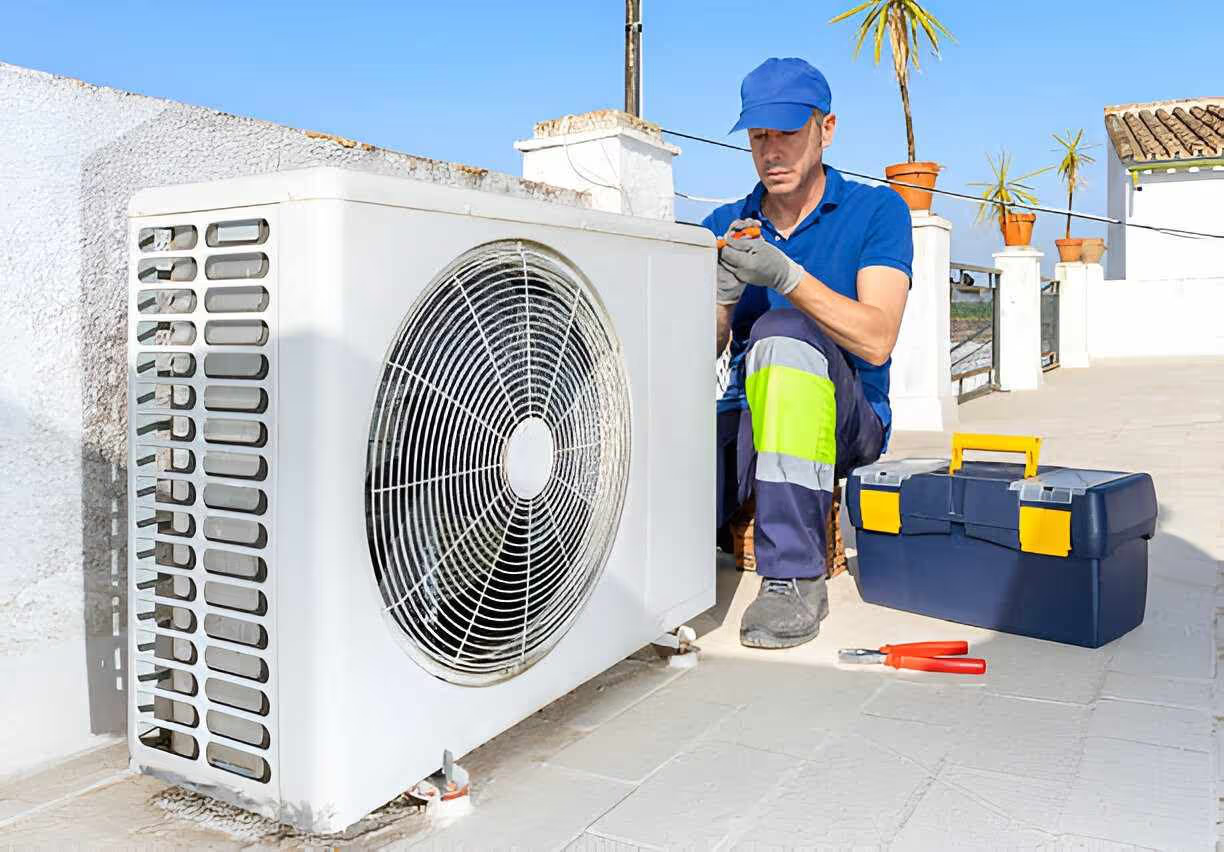Heat Pump Service in Plant City, FL


Why heat pump service matters in Plant City, FL
Plant City’s warm, humid climate means heat pumps operate heavily for cooling and dehumidification. High humidity, frequent thunderstorms, and seasonal pollen contribute to clogged coils, dirty filters, and condensate drain problems that reduce efficiency and risk breakdowns. Prompt, professional service addresses performance loss before it becomes a costly failure, improves indoor air quality, and helps heat pumps meet expected efficiency ratings in a climate where they run most of the year.
Common heat pump issues in Plant City
Homeowners in Plant City often face a set of recurring problems caused or aggravated by local conditions:
- Reduced cooling capacity and long run times due to dirty evaporator or condenser coils
- Poor dehumidification leading to clammy indoor air despite low thermostat settings
- Refrigerant leaks that lower efficiency and can damage compressors
- Electrical failures or capacitor and contactor malfunctions from frequent cycling
- Frozen evaporator coils caused by airflow restrictions or low refrigerant
- Condensate drain clogs and overflow from high airborne debris and pollen
- Corrosion of outdoor unit components from humidity and airborne salts in the greater Tampa Bay region
- Duct leakage or insulation issues that increase load on the heat pump
Types of heat pump services offered
A full-service heat pump program for Plant City homes includes the following core services:
- Diagnostics: thorough multi-point inspections to identify root causes of performance loss
- Repairs: targeted fixes for refrigerant leaks, electrical components, controls, and airflow problems
- Replacements: evaluated when repair is not cost-effective, including guidance on sizing and efficiency
- Installations: professional placement, ductwork coordination, and manufacturer-compliant setup
- Maintenance agreements: scheduled tune-ups, seasonal checks, and priority service plans
- Emergency assistance: after-hours troubleshooting and rapid response for system failures
- Brand expertise: service and warranty support across major manufacturers and models
- Certified technicians: EPA-certified refrigerant handling plus local licensing and industry credentials
What to expect from diagnostics
Diagnostics begin with a systematic inspection and testing protocol designed to pinpoint issues without guesswork:
- Visual inspection of indoor and outdoor units for debris, corrosion, and component damage
- Airflow evaluation at registers and checking filter condition and duct integrity
- Refrigerant pressure and leak checks, plus thermometer readings for superheat and subcooling
- Electrical system tests including capacitors, contactors, breakers, and thermostat wiring
- Condensate system inspection to ensure proper drainage and trap function
- Performance check under typical operating conditions to confirm capacity and efficiency
A clear diagnostic report explains findings in plain language, shows which repairs are recommended, and outlines replacement options when appropriate.
Repair and replacement explained
Repairs address specific faulty parts and system imbalances to restore reliable operation. Common repair tasks include sealing refrigerant leaks, replacing capacitors and contactors, cleaning coils, clearing drains, and adjusting controls. Technicians prioritize fixes that restore safety and efficiency while minimizing downtime.
Replacement becomes the recommended option when:
- The compressor or other major components have failed beyond economical repair
- The system is older and demonstrating steadily declining performance and rising operating costs
- An upgrade to a higher efficiency unit provides measurable utility savings that justify the investmentWhen replacement is needed, technicians size the new heat pump to your home using load calculations, consider ductwork compatibility, and recommend options that match Plant City climate needs, including models with strong dehumidification performance.
Installation and local code considerations
Proper installation is critical for heat pump longevity and performance. Installations in Plant City typically include:
- Load calculation to determine correct unit capacity
- Proper placement and secure mounting of the outdoor unit to prevent flood or storm damage
- Refrigerant line charging to manufacturer specifications
- Correct airflow balancing and thermostat setup
- Permit coordination and adherence to Hillsborough County codes and any HOA requirements
Technicians also consider hurricane season impacts and may recommend corrosion-resistant coatings or elevated pads where local conditions warrant.
Maintenance agreements and their benefits
Maintenance agreements provide predictable, seasonal service to keep systems running at peak efficiency. Typical features include:
- Scheduled spring and fall tune-ups to prepare the system for summer cooling and milder winter operation
- Inspection and cleaning of coils, filters, and drains
- Refrigerant pressure checks and electrical safety tests
- Priority scheduling and documented service history
- Recommendations for upgrades or efficiency improvements
Regular maintenance reduces emergency callouts, improves comfort control, and helps avoid premature replacement.
Certified technicians and brand expertise
Plant City heat pump service teams commonly include technicians with NATE-style training, EPA refrigerant certifications, and local licensing. Technicians are experienced with major brands such as Carrier, Trane, Lennox, Rheem, Goodman, and Ruud, and understand manufacturer warranty requirements and recommended maintenance practices.
Emergency service and scheduling options
Because heat pump failures can affect comfort and indoor air quality, many service providers in the Plant City area offer emergency response options. Typical arrangements include extended hours, after-hours dispatch for urgent breakdowns, and online scheduling portals for routine appointments. Emergency response priorities focus on restoring safe operation and preventing secondary damage such as mold from condensate overflows.
Homeowner maintenance tips for Plant City homes
Small, regular actions by homeowners can improve performance between professional visits:
- Replace or clean filters every 1 to 3 months during peak use
- Keep the outdoor unit clear of leaves, grass clippings, and debris
- Ensure return registers are unobstructed and interior doors allow airflow
- Check condensate drains for slow drainage or backups
- Maintain consistent thermostat settings and use fan settings to assist dehumidification
Timely attention to these items reduces strain on the system and supports more effective professional service visits.
Bottom line
In Plant City, FL, well-executed heat pump service combines climate-aware diagnostics, certified repairs, correct installations, and ongoing maintenance to deliver comfort, efficiency, and reliability. Addressing issues early, scheduling seasonal tune-ups, and working with technicians who understand local environmental impacts preserves performance and helps your heat pump deliver the best value over its lifespan.
Service Areas


